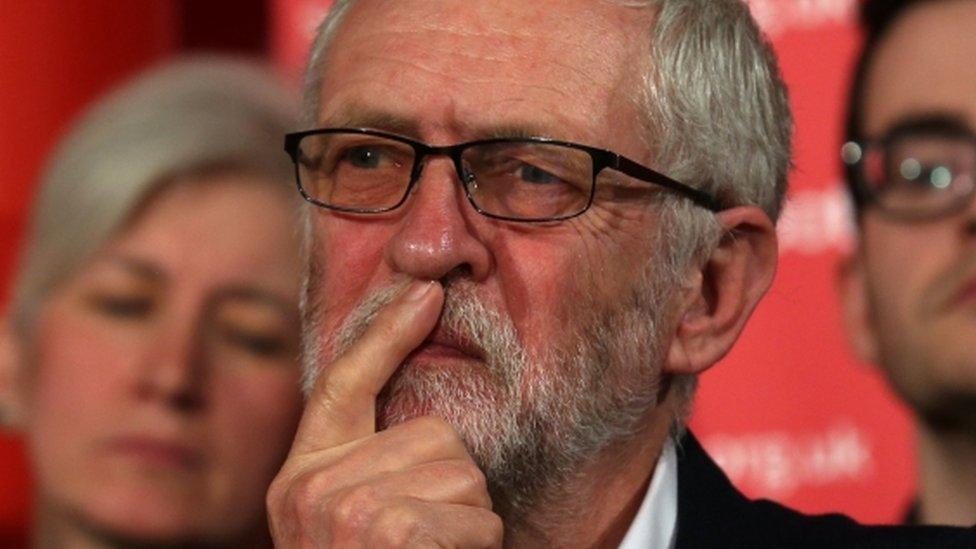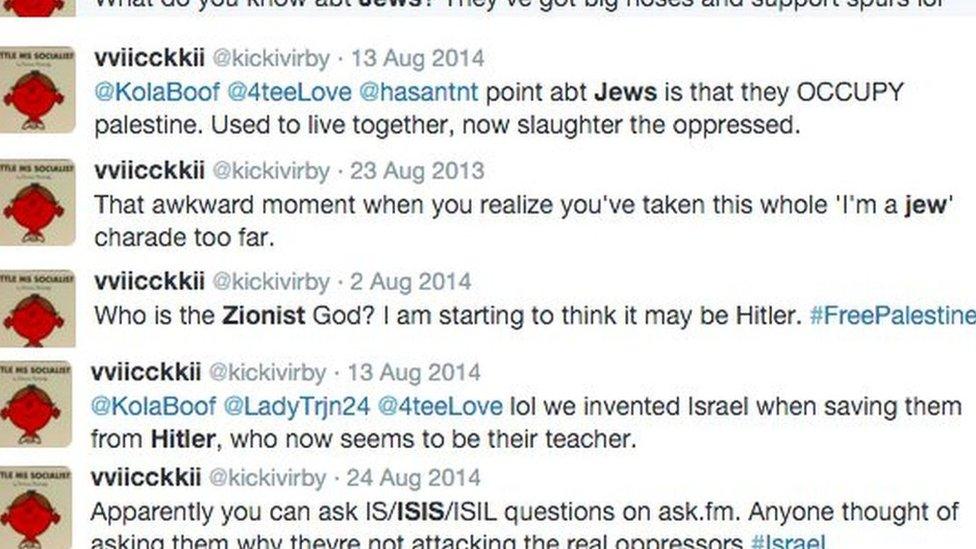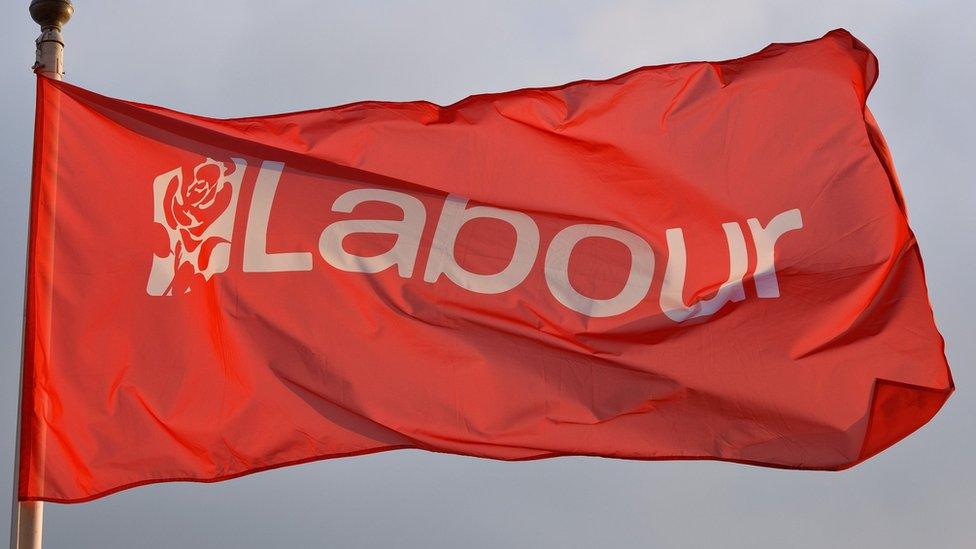Labour's problem with anti-Semitism
- Published

Critics blame Jeremy Corbyn for failing to tackle accusations of anti-Semitism
Labour has a problem with anti-Semitism.
Remember the councillor who thought Hitler was the greatest man in history?
Remember the candidate who suggested asking the so-called Islamic State why it wasn't attacking Israel?
Remember the student who said a large part of the Oxford University Labour Club had a "problem with Jews"?
Imagine the reaction, Jewish figures say, if these were stories about any other minority.
They appear with politically damaging regularity.
Now, though, it seems change will come.
Activists and MPs have told BBC Radio 4's Today programme they are trying to toughen the rules on anti-Semitism, Islamophobia and racism.
Even if they fail, I'm told a party review by Labour peer Lady Royall into allegations of anti-Semitism may well also suggest rewriting the rulebook.
Poisonous atmosphere
That is highly unlikely to be the end of this story, though, because it goes to the heart of a poisonous atmosphere in parts of the Labour movement.
Jeremy Corbyn's critics - who are many and vociferous - put the blame at his door.
It is he, they say, who has attracted new members with these views, who has condemned anti-Semitism but not acted and who has - on occasion - made what they think are utterly inadequate responses to offensive language.
Their concerns are fundamental - they simply don't believe anyone who describes the Palestinian militant group Hamas as a friend wants to tackle this issue.
On the other side, his supporters remind us of those condemnations of anti-Semitism and the decision to launch an inquiry, and point out this is not a new problem.
Lost in the fury about a member suspended then readmitted after anti-Semitic comments only to become vice-chair of her local party, was the fact those decisions were made not under Mr Corbyn, but his predecessor Ed Miliband.

A screenshot of historical tweets by Labour activist Vicky Kirby, as reported by the Guido Fawkes website
No Labour leader could be expected to vet the thousands of new members who have signed up.
For some fighting Mr Corbyn's corner, this issue is serious and real, but is also being used as a stick to beat him by his internal political enemies.
There are those who have long seen allegations of anti-Semitism as attempts to silence legitimate criticism of Israel - on which different wings of the Labour movement take passionately opposing views.
The political debate, then, is not at heart merely a row about rules or party management, but fundamental differences within Labour.
Changing the rulebook will not necessarily change what people say or write, merely how they are dealt with.
It certainly won't change how people feel, and there are plenty in Labour who seek no part in its civil wars but wonder why anti-Semites choose to join their party.
- Published13 April 2016
